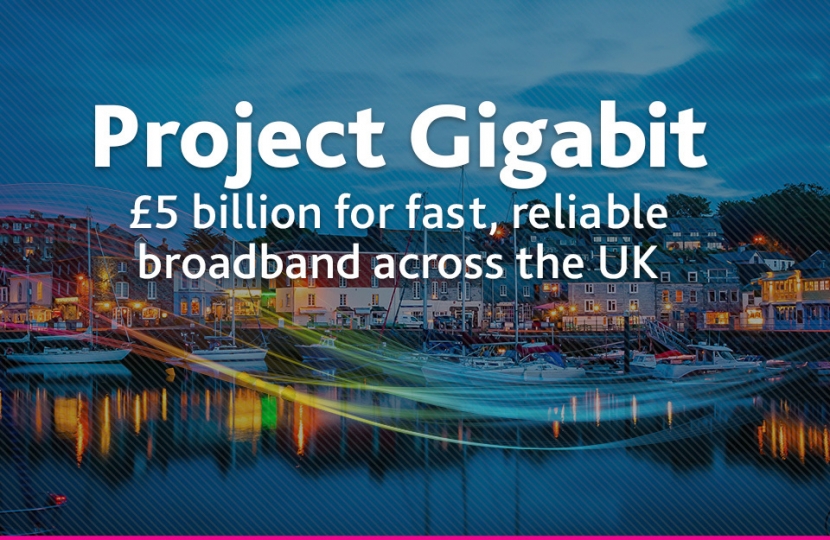The previous government’s ambition was to deliver nationwide gigabit-capable broadband as soon as possible. Over 70% of premises can now access the fastest broadband speeds available, and the UK is on track for 85% gigabit coverage by 2025, with the aim being 100% coverage by 2030. The current government is carrying on this good work.
At the end of November 2024, Damian spoke in a Westminster Hall debate on the importance of rural broadband (above) and the need to see the accelerated roll out of ultra fast broadband in our rural areas to end digital inequality.
Commercial broadband providers (Virgin, BT Openreach, Gigaclear, Trooli, Swish, etc) are in the process of rolling out gigabit-capable broadband (also known as Fibre to the Premises (FTTP) or ultrafast broadband) across East Hampshire. The market continues to make good progress but public funding is required to support the rollout to parts of the country that are not commercially viable. These tend to be in the more rural parts of the country where housing density is low. This is why the Budget in 2020 committed £5bn, ensuring that all areas of the UK can benefit equally. The £5bn will be spent through a package of co-ordinated and mutually supportive interventions, collectively known as Project Gigabit.
An Open Market Review was conducted by Building Digital UK to determine which premises in Hampshire are likely to be reached by the market. After a competitive tender, it was announced that CityFibre has been awarded the contract to supply 75,000 hard to reach homes across Hampshire with ultra fast broadband. The first live connections are expected in July 2024. BDUK will confirm the list of postcodes that fall within this contract shortly (we expect by the end of 2024).
To check which broadband providers currently serve your premises, and the speeds on offer, please use Ofcom’s broadband checker.
If it turns out that your property is not included in the CityFibre network build contract, you may be able to get some funding towards a fibre connection by means of the voucher element of the Project Gigabit programme. The voucher scheme is currently paused for Hampshire while CityFibre completes survey work but it will become available again once the scope of the CityFibre programme is determined.
If you are not covered by the CityFibre roll-out and a voucher is not a way forward, then it is possible that you may be connected by one of the alternative technology schemes that the Government is evaluating for properties where the cost per property of providing fibre to the premises (FTTP) is considered too expensive, even with public subsidy. The cost per property is driven in large part by the housing density in a particular locality; in areas of low density, the cost per property can be extremely high as FTTP involves considerable civil engineering work. The Government is hoping to be able to publish early information concerning its evaluation of alternative technologies in the first half of 2025.
Types and costs of Broadband packages
Information on the different types of broadband is available at: https://www.hampshiresuperfastbroadband.com/switch-on/types-of-broadban…
Ofcom, the communications regulator, has accredited various price comparison organisations so individuals can check which companies can provide internet services (for specific postcodes) and the relative costs of the various packages on offer.
More details are available at www.ofcom.org.uk/phones-telecoms-and-internet/advice-for-consumers/costs-and-billing/price-comparison
Broadband speeds and mobile phone coverage
Local data and maps on broadband connectivity and speeds (based on Ofcom data) are available, with the latest information for East Hampshire at:
https://commonslibrary.parliament.uk/constituency-data-broadband-covera…
Residents can check mobile phone coverage and broadband speeds for their postcode using Ofcom’s online mobile and broadband checker service https://checker.ofcom.org.uk/





